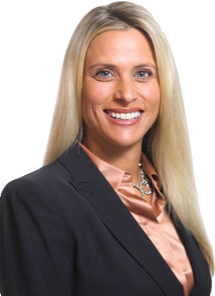The sexual abuse of a child is one of the most heinous crimes that someone can commit, and unfortunately, it’s more common than many of us realize. If your child has been sexually abused—whether by a teacher, family member, or stranger—you should take immediate action to hold the abuser accountable and prevent any further abuse from occurring in the future.
Sexual Abuse Facts
One in nine girls and one in fifty-three boys under the age of eighteen experience some form of sexual assault or abuse. Around 90 percent of childhood sexual assault victims know their abusers, which may include parents and other relatives as well as teachers, coaches, and authority figures. Abusers may also include other minors.
Childhood sexual abuse can have extreme, far-reaching impacts on victims and their families. Adults who take their children’s claims of abuse seriously will help increase the odds of better outcomes and improve a child’s ability to deal with the assault, including increasing the odds that the child will receive justice and compensation.
Legal Outcomes
Legal outcomes for child abuse cases vary significantly. Unfortunately, all too often, children do not receive justice following instances of abuse. Here we discuss some of the reasons for that.
Poor Criminal Outcomes for Many Child Sexual Abuse Claims
Less than 35 percent of child sexual abuse claims move forward to prosecution. Child sexual abuse claims go unprosecuted, sometimes because parents just want to help their children move forward and rebuild their lives following sexual assault or abuse. They’re afraid that a civil child sexual abuse claim could cause their children to revisit the trauma and would prefer to spare them that stress.
Some of the reasons for these poor outcomes include the following:
Lack of medical evidence. Unfortunately, only around 5 percent of child sexual abuse cases include medical evidence. Victims may not report their abuse until long after the actual event, making it incredibly difficult to collect medical evidence. Parents may not want to risk traumatizing their children further by taking them to the emergency room for a rape kit and other medical evidence. Not only that, but also many abusers know how to conceal potential medical evidence so that no proof exists.
Adolescents, in particular, may choose not to report sexual abuse immediately. Some adolescents believe themselves to be in love with an adult who forces or solicits sexual contact from them. Others may feel a sense of shame and want to remain silent for as long as possible, only to finally reveal it much later, when their caregivers can no longer collect medical evidence.
Lack of parental support. Many parents do not adequately support their children after learning of potential sexual abuse. Parents may try to sweep allegations under the rug, especially if they know the abuser personally and feel that he or she would not do something like that. Parents may also fail to offer their children the ongoing support that they need to seek legal help following allegations of sexual abuse.
Lack of a collaborating witness. To move forward, prosecutors may need some type of evidence that will allow them to successfully prosecute a case. A collaborating witness can help establish that the abuse occurred, from noting times when the child was alone with the abuser to issuing direct testimony about abuse, including fondling or inappropriate physical contact between victim and abuser.
A single accusation against an abuser can also make it more difficult to prosecute a sexual abuse claim. Multiple parties who come forward to cite sexual abuse from the same abuser can make it easier to prosecute a claim of sexual abuse.
Legal Consequences for Convicted Child Sexual Abusers
The legal consequences for childhood sexual abuse vary by state. Potential consequences may also change based on the abuser’s plea and the evidence available.
However, legal penalties may include:
- Jail time. Childhood sexual abuse can result in long-term jail time. The length of a jail sentence will depend on the severity of the offense, including whether this is the abuser’s first conviction or subsequent conviction. Multiple convictions of childhood sexual abuse can result in longer periods of jail time.
- The requirement to register as a childhood sexual abuse offender. Going on the sex offender registry, especially as someone who has abused a child, can have significant impacts on other areas of the abuser’s life. He or she must often register for life. An individual’s presence on the sex offender registry may prevent him or her from taking certain types of jobs or going into certain fields. The abuser may not have the right to a social media account or may not have the right to use platforms commonly used by children.
- Termination of parental rights. Parents convicted of sexual abuse or assault may lose the right to seek their children. In some cases, a parent may retain some rights, but the court may allow only supervised visitation with the child. Contact with any child may remain minimal and supervised, even if the child in question did not suffer abuse at the hands of the abuser.
- Removal from contact with the child. Abusers often can no longer contact the child they abused in any way, including by phone or online contact.
Civil Consequences for Childhood Sexual Abuse
In addition to the criminal consequences often associated with childhood sexual abuse, the abuser and others who share liability for the abuse may face significant civil penalties.
Who shares civil liability in cases of childhood sexual abuse? In some cases, the abuser may bear the only direct liability for childhood sexual abuse: in the case of a child who suffers abuse at the hands of a parent or other relative, for example. In other cases, however, other entities may share liability for any abuse that occurs. These entities owe the children that they work with every day a duty of care to keep the children safe.
Potentially liable entities may include:
Schools. An average of 7 percent of students in a survey of more than 3.5 million students faced unwanted physical contact from a teacher or other adult in the school system. This included unwanted touching as well as direct sexual contact. The number rises to 10 percent when the survey includes students who have received other unwanted sexual attention, including viewing pornography or hearing sexually explicit comments from a teacher.
While these actions occurred most commonly at the middle and high school level, even younger children may experience unwanted sexual attention from teachers and other adults in authority—and too few victims report the abuse to another adult who can do something about it.
Schools owe their students a high duty of care to keep them safe, both during school hours and during, before, and after school activities. School administrations not only need policies in place that will help protect teachers and students, including policies concerning students remaining alone in the room with a single teacher or another educator, but also policies that can help prevent abuse or sexual misconduct.
Unfortunately, too many schools offer too many opportunities for sexual abuse, including coaches and teachers left alone with students, dark corners, and too little supervision.
Organizations that care for children. After-school clubs and classes offer many opportunities for adults to interact with children: karate classes, dance classes, sports teams, and even academic classes. The adults who run and guide these activities often form close relationships with the children that participate, especially when students remain part of the same group or team for several years.
Unfortunately, these organizations can also open the door to potential sexual abuse. Like schools, these organizations bear a duty of care to the students that enjoy these activities and interactions. Schools must carefully vet and background check all potential employees and volunteers, as well as ensuring that policies are in place to protect the children who attend such activities.
Churches and religious organizations. The scandal sweeping through the Catholic Church, in which multiple priests have faced allegations of sexual abuse against children, shows proof enough that religious organizations can fall prey to sexual predators in their midst, just like any other organization. These organizations must take the same care that other organizations that cater to children utilize to keep children safe.
Unfortunately, religious leaders often receive a higher degree of trust than other types of leaders, which may result in more alone time with children. This, in turn, can increase the risk of childhood sexual abuse.
What civil consequences do these organizations face when dealing with claims of childhood sexual abuse? In many cases, organizations found liable for allowing childhood sexual abuse to occur may face significant civil consequences as a result of abuse within those organizations. Potential consequences may include:
Requirements to pay out a sexual abuse claim to the child or the child’s family.
A sexual abuse claim may include:
- Coverage for any medical expenses that the victim incurs as a result of the assault. For a child who gets taken to the emergency room after the event, this could include the cost of immediate emergency care and a rape kit. It may also include the diagnosis and treatment of any STDs and treatment for an unwanted pregnancy.
- Coverage for psychological treatments. The emotional implications of childhood sexual abuse can prove far-reaching and difficult to deal with. Children may have ongoing physical symptoms, including abdominal pain, following abuse. Abused children may also suffer from nightmares, PTSD, increased anxiety and depression, panic attacks, and sleep disorders as a result of the abuse. Childhood survivors of sexual abuse have a higher rate of self-harm, eating disorders, and addiction. Prompt psychological treatment may make it easier to prevent these potential outcomes; however, many victims still struggle with ongoing issues long after the abuse itself, especially in the case of long-term abuse. Victims may require ongoing psychological treatment for several years. An attorney can help you include the ongoing cost of psychological treatment as part of your sexual abuse claim.
- Compensation for the child’s pain and suffering. A child who suffers sexual abuse may have ongoing psychological trauma on top of the physical pain suffered during the event. An attorney can help establish a monetary value for that pain and suffering and help the child seek compensation for such suffering.
Requirements to change existing policies to protect against future sexual abuse. While nothing can undo the abuse that a child has already suffered, often at the hands of a trusted adult, policy changes can help prevent the future assault and abuse of other children for which an organization cares.
Such changes in policy may include:
- Installing cameras in rooms where a single adult interacts with children regularly, including rooms where adults may interact with multiple children at the same time.
- Offering sensitivity training to all staff members, including those who work both directly and indirectly with children. This training may include how to spot signs of sexual and physical abuse in both adults and children.
- Changing policies so that adults cannot interact one-on-one with children, but must have either another adult or several other children present during such interactions.
- Instituting a policy that requires the door remain open whenever a child must go into a room with an adult.
- Increasing adult supervision, especially in cases where one minor commits acts of sexual abuse against another.
Shutting down an organization where sexual abuse continues. In some cases, if an organization loses control of its employees or charges or cannot protect against childhood sexual abuse, it should shut down as a result of its failures.
How Retaining an Attorney Will Help
Working closely with an experienced sexual abuse attorney can significantly improve the outcome of many childhood sexual abuse claims. An attorney serves as a valuable advocate that can help guide both parent and child through the legal process, from handling the details of the investigation to working to maximize a child’s ultimate compensation.
For example, an attorney can:
-

Allison Worden, Child Sexual Abuse Attorney Help collect evidence against the abuser. An experienced sexual abuse attorney can help seek out past accusations of abuse or help establish evidence concerning specific acts of abuse, from finding collaborating witnesses to determining when the adult in question had the opportunity to go off alone with the child. An attorney may also help identify other behaviors that could prove indicative of abuse. Your attorney will likely engage in the following activities:
- Identify all parties that share liability for a child sexual abuse incident. Who bore a duty of care to the child at the time of the abuse and failed to keep the child safe? An attorney can determine all parties that share liability and help build that case.
- Provide a blueprint of what the legal process will look like. An attorney can help the victim and his or her parents better understand what to expect when moving through the legal process, including explaining the difference between a criminal case and a civil one.
If you have a child who suffered sexual abuse, contact an attorney as soon as possible to receive the vital support that can help you better understand what your child deserves and how to proceed.







